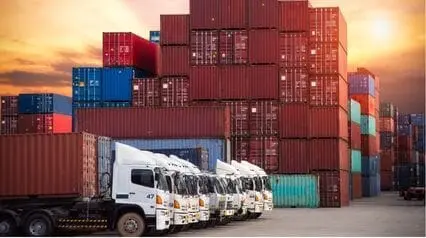What is Industrial Logistics?
Industrial logistics is the process of planning, implementing, and controlling the flow of resources and materials between the point of origin and the point of consumption in order to meet the needs of customers or clients. It includes coordinating transportation, storage, distribution, and other activities related to the movement of goods.
It encompasses the entire supply chain from the acquisition of raw materials through production and distribution to the delivery of the final product to the customer. Industrial logistics is a critical part of the manufacturing process and can have a significant impact on the overall efficiency and effectiveness of the operation.
It encompasses the entire supply chain from the acquisition of raw materials through production and distribution to the delivery of the final product to the customer. Industrial logistics is a critical part of the manufacturing process and can have a significant impact on the overall efficiency and effectiveness of the operation.
What is Its Purpose?
The goal or purpose of industrial logistics is to optimize the efficiency of the overall supply chain and create a competitive advantage for the company. In order to achieve this, industrial logistics must take into account the specific needs of the company, the nature of the products being transported, and the specific conditions of the transportation network.
Below are some of the following activities involved in industrial logistics:
- Planning and designing the distribution network
- Maintaining a robust inventory management system
- Coordinating transportation schedules
- Ensuring that products are delivered on time and in good condition
- Minimizing waste and maximizing resources
Digitize the way you Work
Empower your team with SafetyCulture to perform checks, train staff, report issues, and automate tasks with our digital platform.
Get Started for FreeWhat are the Principles of Industrial Logistics?
Industrial logistics is governed by the following three principles when used in a business:
1. Market Constraints
In order to be successful, businesses need to understand and respond to the limitations and opportunities posed by the markets within which they operate. This includes understanding global and local market condition
s, such as fluctuating demand, return processing, and more.
2. Technical Constraints
There are certain physical limitations that businesses need to take into account regarding logistics planning. This may include the size and shape of products, transportation mode restrictions, and storage constraints.
3. Operational Constraints
Businesses need to consider their own internal capabilities and limitations when devising a logistics plan. This may include the business’s financial resources, information systems, labor availability, and so on.
What are the Components of Logistics?
So how does logistics work in the context of industrial logistics?
To put it simply, logistics is the coordination of transportation, warehousing, and materials handling to control the flow of resources between points of origin and consumption, according to the Michigan State University. This process can be broken down into five distinct components:
- Transportation
- Warehousing
- Materials Handling
- Information Management
- Packaging
What are its Examples and Practical Applications?
Below are some examples and practical applications when industrial logistics is applied in business:
1. Manufacturing
In order to streamline production and decrease waste, many manufacturers use industrial logistics to plan and optimize their production process. This includes planning for raw materials, production equipment, and workforce needs. By doing so, factories can produce goods more efficiently and with less waste.
2. Retail
Retailers also use industrial logistics to plan and optimize their supply chains. This includes planning for inventory levels, transportation needs, and store layout. By having a well-planned supply chain, retailers can provide customers with the products they want while minimizing costs.
3. Service Industry
Industrial logistics can also be used in the service industry. For example, hospitals can use industrial logistics to plan for patient flow, staff assignments, and supplies needed. By having a well-planned system, hospitals can provide better care for patients while minimizing costs.
FAQs for Industrial Logistics
The work of logistics is to ensure that materials, products, and people are moved effectively and efficiently between different locations. This can involve managing the flow of goods, information, and resources within a company or organization, as well as coordinating transportation and storage systems.
Logistics is composed of five types which include the following:
- Procurement logistics
- Production logistics
- Sales logistics
- Recovery logistics
- Recycling logistics.
Logistics is necessary for the industrial sector because they enable companies to control the process of moving resources and goods from suppliers to customers. It helps companies to optimize their production processes and minimize costs.



